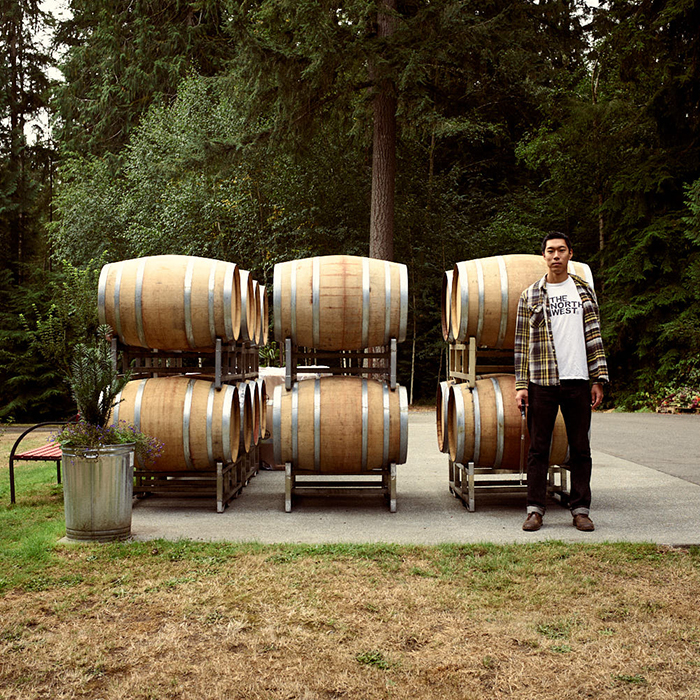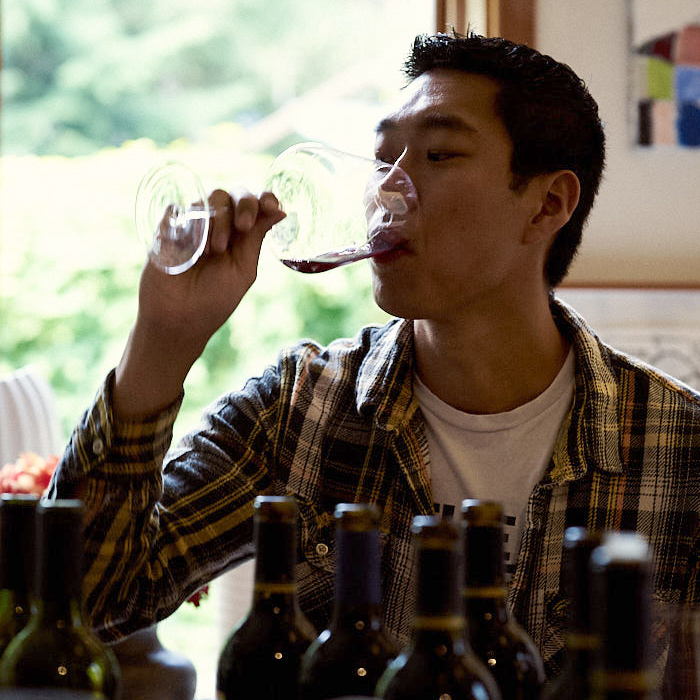A west-coast wonder: Washington’s Andrew Will
Author: Alexis Self

I have to admit that I didn’t know a lot about the state of Washington or its wines before I met Will Camarda, winemaker at Vashon Island winery Andrew Will. Indeed, the only things I knew about Seattle were that it was the birthplace of Frasier and Nirvana, and that it can get quite cold (which I only learned from watching the former).
But it’s a different story in the eastern part of the state. A mere three hours’ drive from Seattle, in Columbia Valley – home to Andrew Will’s vineyards – the difference in climate and rainfall is stark. Here, in the rain shadow of the Cascades Mountains, a dry, Mediterranean climate makes the area perfectly suited to growing grapes.
Though wine was being made in Washington as long ago as the 1820s, it’s only in the past 20 years that anyone outside the US has really started taking notice. This is in large part due to people like Chris Camarda, Will’s dad. He started the winery (named after his nephew, Andrew, and son, Will) in 1989, after years spent in the Seattle restaurant industry. Its first home was a 10-by-60-foot room on an industrial estate, but early success led Chris to purpose-built lodgings on Vashon Island, an evergreen Shangri-La in Puget Sound. Aside from this change of scenery, the wine is still made in almost exactly the same way as when Chris began.
Today, despite Will taking over the reins, the winery’s mission remains the same, “to make wine that my father likes drinking,” Will tells me jokingly. Conforming to Gore Vidal’s presidential suitability test, Will was initially reluctant to join the family business, studying architecture and then geology at university. But when he moved back to Seattle, the call of the pump-house proved irresistible: “I was driving to the vineyards with my dad aged four and one of my chores as a kid was doing punch-downs at night. People forget about a family business, it’s osmosis. The best teaching is that which you don’t really think is teaching.”

Chris is still very much involved in the winemaking, especially when Will is abroad promoting the brand. “You can no longer just be a winemaker, you have to be a business person, but I’m not just a sales rep. When I get home, I’m going to be cleaning barrels. People often talk about family wineries, but then you see they’re making a million cases a year. There’s still only around six of us at Andrew Will, including me, my dad and my uncle, who’s the Cellar Master.” When overseas, Will sees it as part of his remit to promote Washington as well as himself: “We’re a tight-knit winemaking community and any publicity for one of us benefits us all.”
Part of this involves dispelling a few myths, “When people think of Washington, they think cold and they think Pinot Noir and Riesling, but it’s way too warm in Washington to grow Old-World-style Pinot Noir.” Instead, Andrew Will focuses on making Bordeaux-inspired blends designed to highlight the region’s unique terroir. And, given Chris’s great love of French and Italian cuisine, their food-pairing ability is of the utmost importance. The latest vintage to hit the market is 2013, the wines fresh and fruity, but with an elegance that belies their underdog status.
Will opines, “It’s fun to be the new kid on the block but you have to work harder.” Despite being in his very early 30s, he talks like someone with decades in the trade, and that’s because he is. He’s keen to avoid the points-chasing of some of his countrymen: “It’s a double-edged sword. Ratings helped us grow initially, I don’t think people in the Midwest or on the East Coast would even know about us without certain publications. But once you get people trying to emulate a certain style and stop innovating, it homogenises the industry. People are no longer making wine because they like to drink it, they are making it to get a certain score and that creates a division between consumer and winemaker.”
It’s not only hundred-point-hunters that are losing touch with drinkers, “French and Italian wines that my father used to enjoy are now financially inaccessible, even Napa is starting to price themselves out of the market.” While lamenting this, Will also sees it as an opportunity, “Andrew Will has the advantage that we make wine with an Old World sensibility, but without the elitist connotations (or prices) of Bordeaux or Burgundy, and it’s proving popular, even in those places.” Will’s being modest. Given the quality of the wines, it’s no surprise that Andrew Will is finally earning the recognition it deserves.
One to try
2016 Andrew Will, Cabernet Sauvignon, Columbia Valley, Washington State: Unlike most of Andrew Will’s wines which are Bordeaux-style blends, this wine is pure Cabernet Sauvignon. The fruit is sourced from the family’s Two Blondes and Champoux vineyards, producing a wine rich in black cherry and cassis fruit with an herbal edge, while 14 months in old oak adds spicy complexity. With bright acidity and powdery tannins, it’s designed to be savoured in its seductive youth – ideally alongside barbecued or roasted meats.


